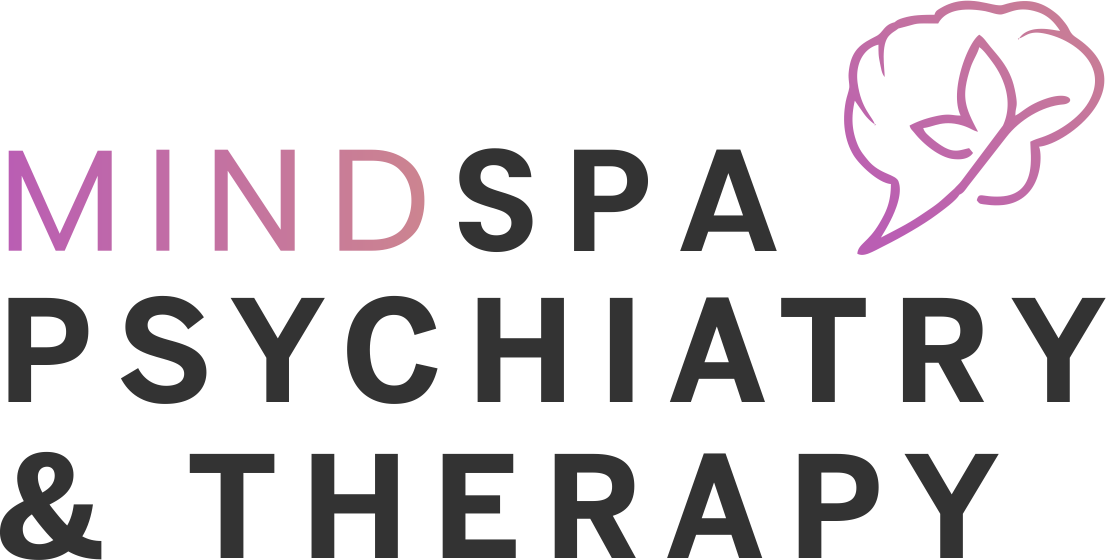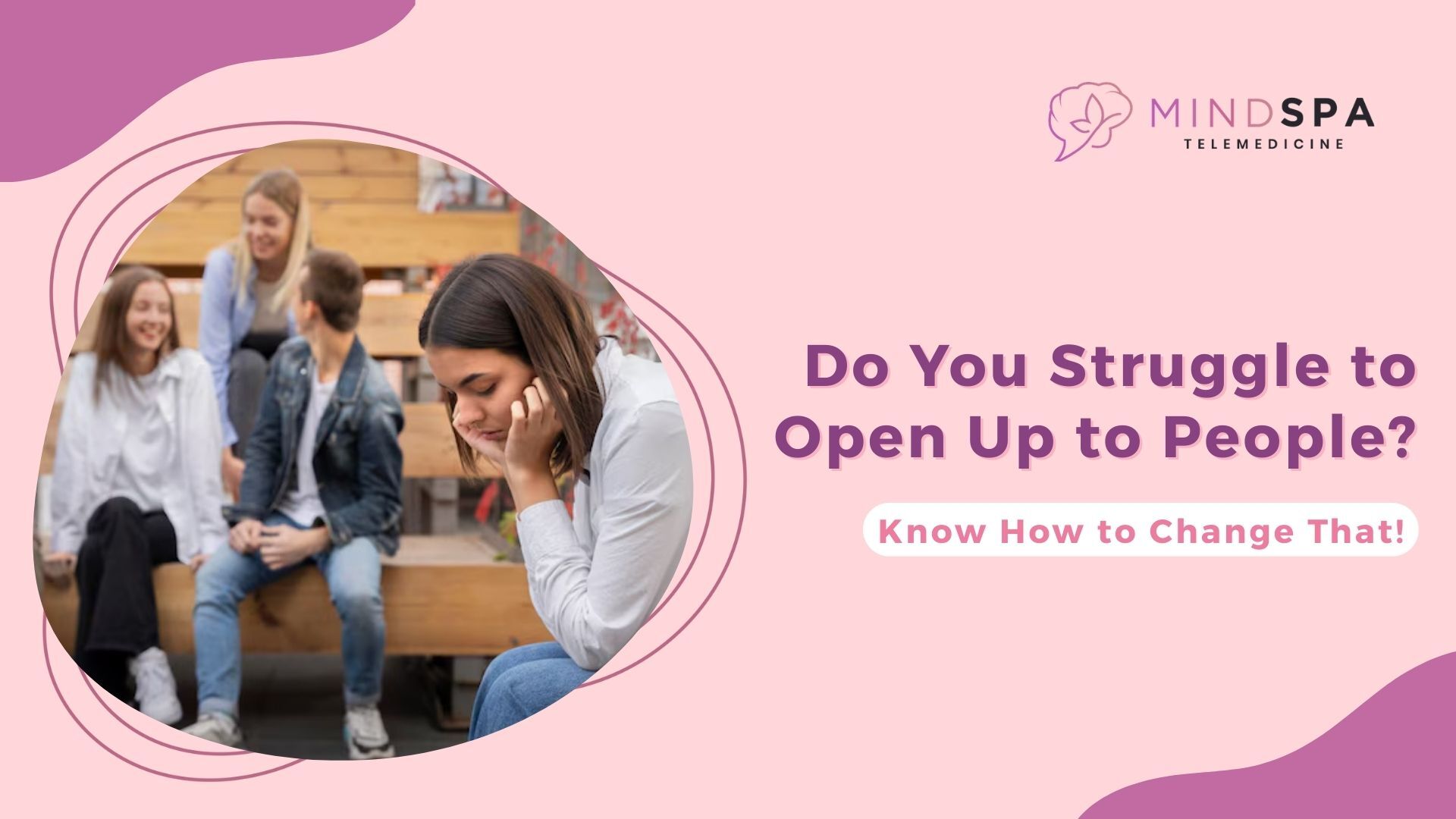Human beings vary in their ability to disclose their emotions freely. People with this ability demonstrate their ideas and receive support and maintain relationships by freely sharing their thoughts. Most people face difficulty in disclosing personal emotions to others. It can feel uncomfortable. Awkward. Even dangerous.
Many people experience feelings of holding back their emotions together with avoiding vulnerability while also experiencing dread when others get too close. MindSpa Psychiatry & Therapy provides treatment to patients who face difficulties establishing mature emotional relationships. They are willing to connect with people yet something stands between them and this possibility.
This article will discuss the difficulties of sharing personal feelings and how therapy serves as a solution.
Why It’s So Hard to Open Up
You weren’t born afraid to connect. But life experiences shape how we relate to others. If you learned, directly or indirectly, that vulnerability led to pain, rejection, or judgment, you probably started to protect yourself. You may have built walls to feel safe.
Common reasons people struggle to open up include:
- Childhood trauma or neglect
- Fear of being judged or misunderstood
- Low self-worth
- Past betrayals in relationships
- Emotional shutdown from prolonged stress
Sometimes, you might not even realize you’re doing it. You just know that conversations feel surface-level. You avoid talking about feelings. And deep down, it feels like no one really knows the real you.

Emotional Guarding Is a Survival Skill
If you struggle with trust or vulnerability, it’s not a flaw—it’s a form of protection. Emotional guarding is how your mind keeps you safe from perceived harm. The problem is, it also keeps you disconnected.
You may crave close relationships but panic when someone gets too close. You might long for love but sabotage intimacy. This push-pull dynamic is exhausting and often leaves you feeling isolated.
Therapy helps you recognize these patterns and explore the beliefs behind them. Over time, you can learn how to let others in—without fear of losing yourself.
Are You Afraid of Intimacy?
Many people associate intimacy with romantic relationships, but it shows up in all areas of life—friendships, family, even professional settings. When you’re afraid of intimacy, you might:
- Change the subject when conversations get emotional
- Avoid eye contact
- Keep people at arm’s length
- Struggle to express your needs or desires
- Feel discomfort during moments of closeness
If any of these sound familiar, you might be dealing with an underlying fear of emotional exposure. The good news is, it’s not permanent. You can develop the ability to connect deeply without feeling unsafe.

Rewiring the Way You Relate
At MindSpa Psychiatry & Therapy, we help you gently explore the root of your emotional walls. Through consistent, compassionate therapy sessions, you can rewire how you relate to yourself and others.
Therapy gives you a safe space to:
- Process past emotional injuries
- Build self-trust
- Practice vulnerability in small, manageable steps
- Learn how to set healthy boundaries
- Feel seen, heard, and validated
The more you feel secure within yourself, the easier it becomes to show up authentically in relationships. You stop hiding. You start connecting.
The Link Between Avoidance and Anxiety
People who avoid emotional closeness often struggle with anxiety. The fear of being rejected, judged, or hurt can be overwhelming. This leads to emotional avoidance—a pattern that keeps you from experiencing real intimacy.
Therapists often see this in individuals with anxious-avoidant attachment styles or those who’ve experienced emotional neglect. The brain learns that vulnerability is risky, so it constantly scans for signs of danger in relationships—even when there’s no real threat.
Therapy helps you break this cycle. It teaches your nervous system that emotional connection is safe. And in time, your body and mind learn to relax in relationships.

What If You’ve Never Been Comfortable With Affection?
Some people never learned how to receive love and affection. Maybe your parents weren’t emotionally expressive. Maybe you were criticized for showing emotion. Or maybe affection was tied to manipulation or control.
If you grew up in an emotionally distant environment, you might feel uncomfortable with hugs, compliments, or acts of kindness. These things may feel foreign or even threatening.
Therapy helps you explore these reactions without shame. Over time, you can redefine what affection means to you—and how to accept it without fear.
Let People See the Real You
It’s scary to be vulnerable. But it’s even harder to live behind a mask. The cost of emotional isolation is high: loneliness, relationship struggles, chronic anxiety, and low self-worth.
You don’t have to stay stuck. At MindSpa Psychiatry & Therapy, our licensed therapists create a warm, non-judgmental space where you can explore your barriers to connection—and begin building healthier, deeper relationships.
You’re not broken. You’re just guarded. And with the right support, you can learn how to let people in.
Book your online therapy session now and start your journey toward real connection.
Frequently Asked Questions
Why is it hard for me to open up to people?
Opening up can be difficult if you’ve experienced emotional hurt, rejection, or trauma. Your brain learns to guard you from further pain, which can lead to emotional walls. Therapy helps identify these patterns and offers tools to create safe, healthy emotional connections.
Why do I struggle to get close to people?
You may fear vulnerability or emotional dependence. This often stems from early attachment wounds or past relationship trauma. These fears create a push-pull dynamic where you want closeness but feel unsafe getting there. A therapist can guide you in healing those relational patterns.
Why am I scared to fall in love?
Falling in love means opening up, trusting someone, and risking emotional exposure. If you’ve been hurt before or never learned emotional safety, love can feel threatening. Therapy helps you explore these fears and learn how to navigate love with more confidence and self-awareness.
What is the rarest phobia?
One of the rarest phobias is anatidaephobia—the fear that somewhere, somehow, a duck is watching you. Though fictional, it reflects how irrational phobias can be. Rare but real phobias include nomophobia and cherophobia.
Why am I uncomfortable with affection?
Discomfort with affection often stems from childhood experiences, trauma, or emotional neglect. If affection was absent, inconsistent, or tied to negative outcomes, your nervous system may perceive it as unsafe. Therapy helps retrain your brain and body to experience affection without fear or tension.

